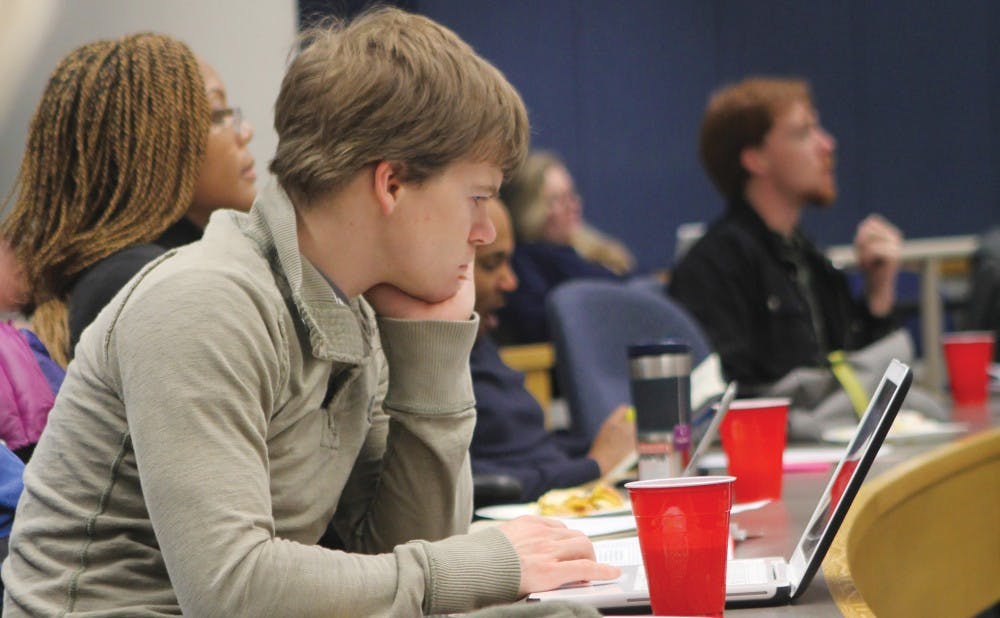The Executive Committee of the Academic Council presented on the faculty governance structure and the decision-making process for major University changes at a meeting of the Graduate and Professional Student Council Tuesday.
ECAC Chair Joshua Socolar, professor of physics, said the two most important principles to faculty governance were the “One Faculty” idea—that faculty at all schools should be treated comparably in spirit—and the Christie Rule—the notion that faculty must have the opportunity to comment on any items the administration is interested in presenting to the Board of Trustees. Socolar noted that although these rules are not legally binding, the administration takes them quite seriously.
“There’s a sense that in order to really provide the best education we can and do the best results we can, we need to have a faculty that brings the full array of perspectives to the problems in the classroom,” Socolar said.
Socolar highlighted the growing number of new master’s programs and faculty diversity as major issues ECAC considers, noting that because master’s students pay full tuition, they could potentially be admitted to raise revenue.
“Some departments, if allowed, could make a lot of money that way...so it would shift the balance of resources within the University in general,” he said.
Socolar added that although ECAC focuses on faculty perspectives, they also consider how student life can impact faculty.
“We look at things like tenting, and ask, ‘Is there a role for faculty to play there?’” he said. “You might be happy to hear that the answer is no.”
In other business:
The GPSC executive board described their positions for the general assembly and hosted a session for more specific questions after the meeting. Elections will take place April 1 and April 15. Ben Shellhorn, GPSC student life co-chair and second-year J.D./M.B.A. candidate, described his position on student life.
“The way student life was sold to me last year was that you get a $40,000 budget to get people drunk,” he said.
Basketball Committee co-Chairs, Patrick Killela, a fifth-year pathology Ph.D. candidate, and Ralph Michael Peace, a second-year pathology Ph.D. candidate, revealed mostly positive results from their survey about the annual basketball campout, in which graduate students tent for tickets. They said they will try to publicize the event and make it more family-friendly next year.
GPSC unanimously approved bylaw revisions, which included clarifications, removal of the blank Article XI and a renaming of Executive Council positions.
Paul Escajadillo, a daytime military MBA student and the Fuqua representative on the Veterans Advisory Commitee, presented on an upcoming raffle. VAC will award 10 gift cards of $100 to one veteran from each graduate school and Trinity College to assist with fees not covered by GI bills.
The GPSC retreat will take place March 27 and will include a panel with seven of the graduate and professional school deans.
The GPSC Wiki-site was launched this week.
GPSC student group liaison Abbe Labella, third-year Ph.D. candidate in genetics and genomics, presented updates on the GPSC house on Central Campus, including a three-year plan to renovate the first floor and make it more accessible for students to host meetings and events.
Amy Hafez, representative from the Department of Molecular Genetics and Microbiology, presented complaints from her constituents about changes made to who is allowed in the parking garage on Research Drive. It was then discovered that GPSC representatives on the Parking and Transportation Committee have never met or corresponded.
Get The Chronicle straight to your inbox
Signup for our weekly newsletter. Cancel at any time.

